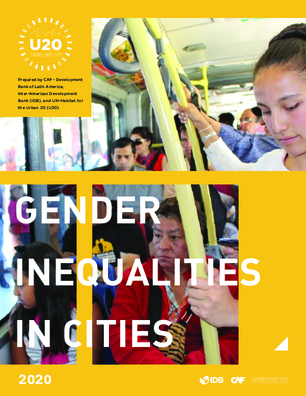Gender Inequalities in Cities
Date
Mar 2020
This document elaborates on gender related challenges in urban planning and governance from three major perspectives regarding womens access to city space and resources: service, political, and economic accessibility. First of all, in the absence of gender-sensitive urban planning, women can see their access to services restricted by limited access to land and affordable housing due to discriminatory legal and cultural constraints, increased disease burden due to the lack of adequate basic services, and limited mobility due to safety issues and to the costs incurred in using public transportation. As for political accessibility, there is an array of specific barriers and vulnerabilities that women face in the form of gender-based discrimination that results in unequal community and public participation, and limited access to information. Gender inequality also limits women's access to economic resources and opportunities, and the possibility for them to realize their full potential in the job market, either as salaried workers or as entrepreneurs. As urbanization usually does not provide the same benefits to individuals from different genders, this paper gives practical recommendations for national and local governments on how to mainstream gender in urban planning, regulations and governance to promote cities that are inclusive and cohesive.




